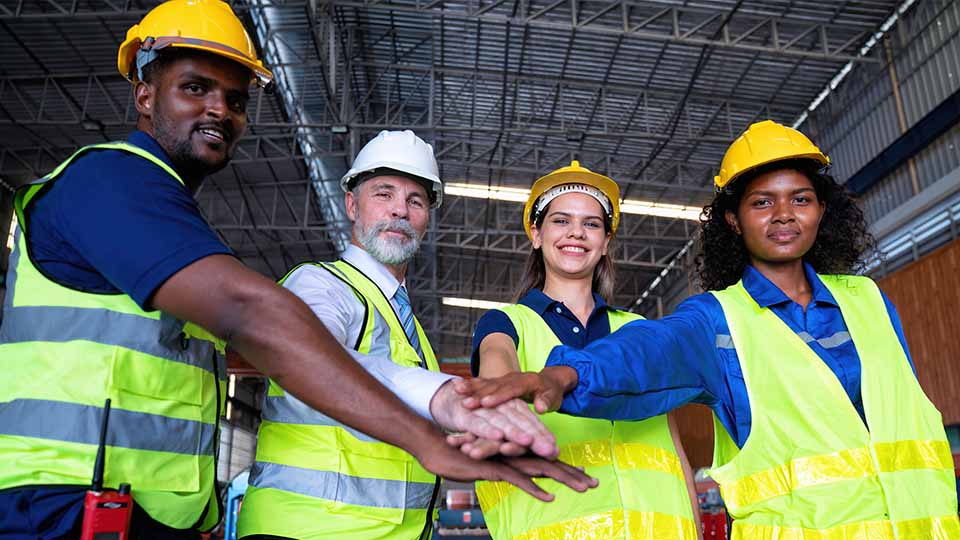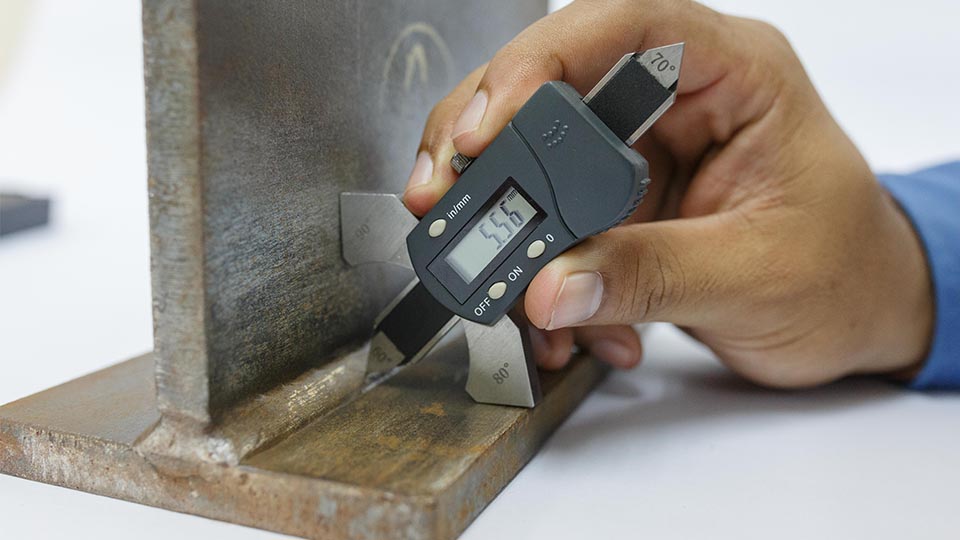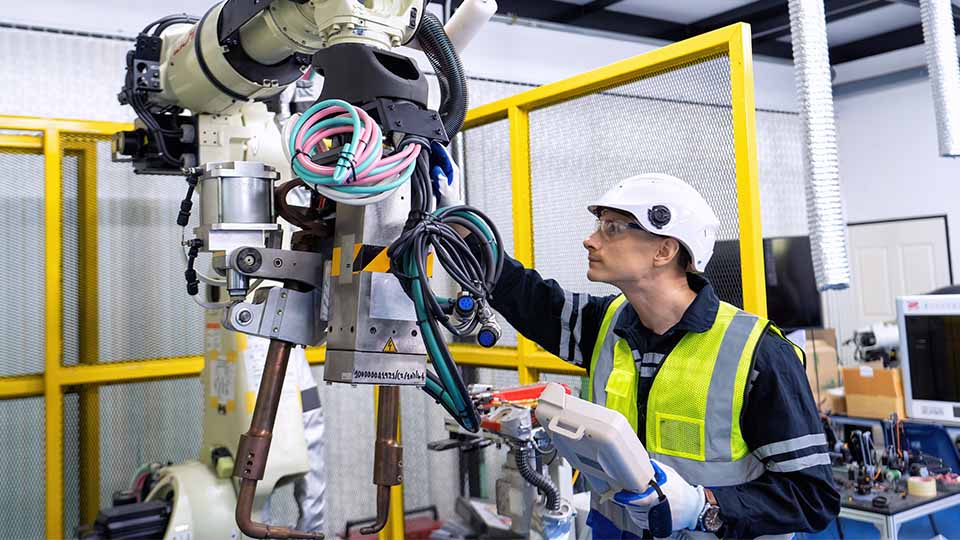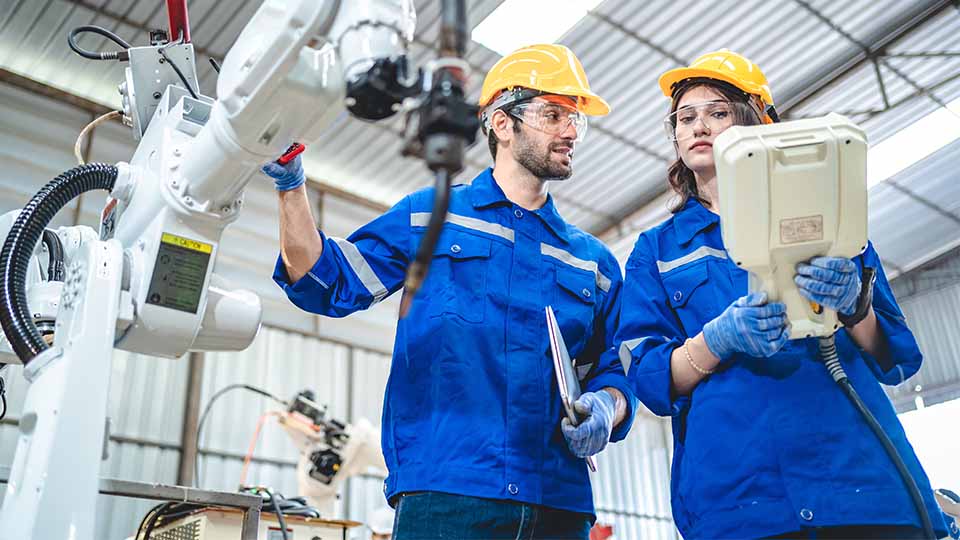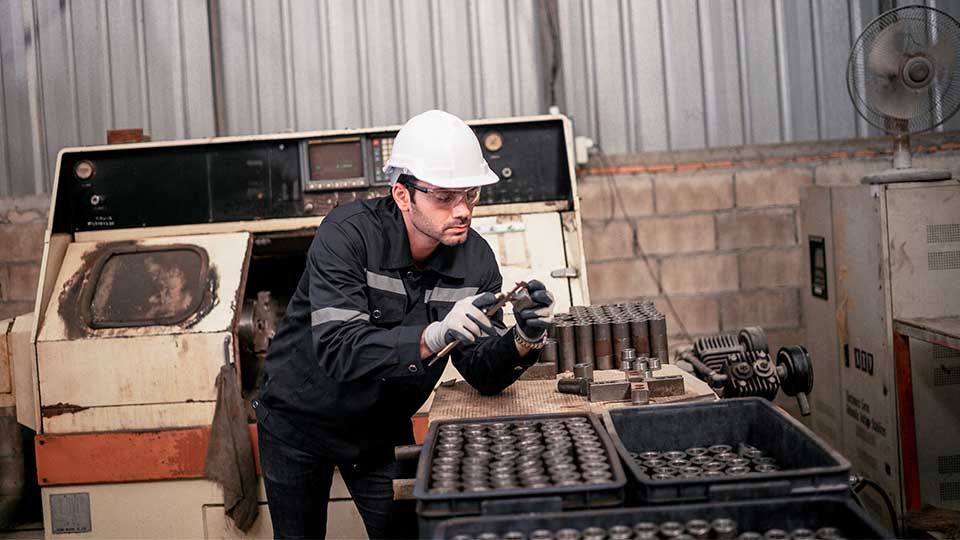Advanced robotics and automation consulting services are often the secret of how businesses seem to stay effortlessly ahead of their competition.
These technology consultants can transform your operations, making everything faster, more efficient, and more profitable. But let’s be honest—navigating the automation world on your own can be daunting, which is exactly why you need a consultant. With the right expertise on your side, you can cut through the confusion, choose the best solutions for your business, and implement them without a hitch.
In this guide, I’ll explore what advanced robotics and automation consulting is all about, why it’s a must for your business, and how to find the perfect consultant to take your business to the next level.
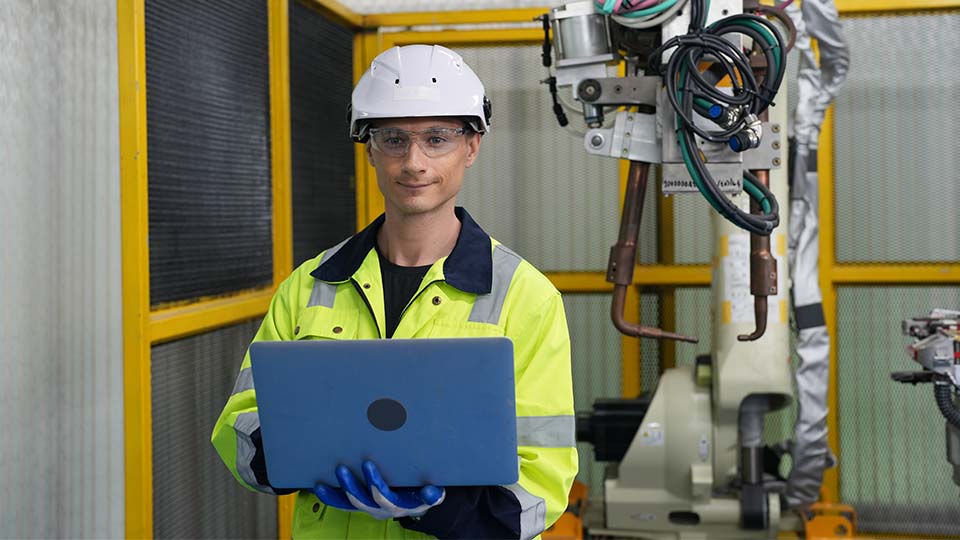
What is advanced robotics and automation?
Advanced robotics and automation revolve around using high-tech automated machines and systems to do jobs that usually require humans but can perform tasks with a lot more efficiency and precision.
Think of robotics as the brains and brawn behind tasks that can be automated. These robots can be programmed to handle everything from simple, repetitive tasks, like putting together parts on an assembly line, to more complex actions, like performing work in environments that are too dangerous for people.
Now, when I talk about automation technology, I am really just talking about using the technology to get tasks completed without the need for someone to push a button every time in the operation. This can be as simple as software that automatically fills in data on a spreadsheet or as complex as systems that run an entire factory.
When you combine advanced robotics with automation, you get powerful automated systems that can really boost productivity and quality in all sorts of industries.
For example, in manufacturing processes, industrial robots can take over repetitive or risky tasks, which helps keep workers safe and speed up production. In logistics, automation can streamline everything from managing inventory to shipping products, which means quicker deliveries and lowering internal costs.
What is advanced robotics and automation consulting?
Industrial robotics and automation can do wonders for your business, but they can also be pretty complicated to figure out on your own. That’s where a consultant comes in handy.
These consultants are experts who work with your business to figure out how these technologies can make your operations smoother, more efficient, and cost-effective. Whether you’re looking to add robots to your production line, automate routine tasks, or integrate advanced systems into what you’re already doing, a consultant is there to make sure everything goes off without a hitch.
Here’s how it usually works: a robotics consultant may start by taking a close look at your current setup to see where things could be improved, like cycle time and process flow. Then, they’ll help you pick out the right technologies to improve the process and plan out how to implement them while even overseeing the installation.
They might also train your team on how to use the new systems and equipment and often provide support after installation.
What are the benefits of advanced robotics consulting?
As anyone would expect, implementing advanced robotics into your current processes is a tedious and complex task. That’s the number one reason why you need an engineering consultant. However, it’s worth noting other benefits of investing in a consultant:
Expert Guidance:
One of the biggest perks of advanced robotics consulting is the expert guidance you’ll get along the way. Robotics and automation technologies can be pretty complex, and if you’re not well-versed with the hardware and software, it can feel like stepping into uncharted territory. This is where a consultant can make a huge difference.
They bring a wealth of knowledge and experience to the table, helping you cut through the noise and understand what’s available and, more importantly, what’s right for your business. A good consultant takes their time to understand your specific needs, project challenges, and company goals. Then, they guide you through the entire process, from selecting the right technology to making sure it’s implemented effectively. This means you’re making decisions based on solid advice, not just taking a wild guess.
For example, imagine you run a manufacturing company, and you’re thinking about automating part of your production line to speed things up. You’ve heard about how industrial robots can help, but you’re not sure which type would work best for your specific needs. A consultant would step in, assess your current operations, and recommend the right type of robotic system for your setup. They’d then help you get everything in place and make sure it’s running smoothly so you can focus on growing your business without worrying about whether you made the right choice.
Cost Savings:
Bringing in a consultant might feel like adding another line to your expenses, but it’s actually a wise business investment that can save you money in the long run. A good consultant knows where to find the best technology at the right price, which helps you avoid overspending on tools that aren’t a perfect fit for your business.
They’re also pros at spotting where you might be wasting money and can streamline the whole industrial automation process so you’re not throwing time or resources down the drain. Instead of trying to figure everything out on your own, a consultant makes sure you get it right from the start, which is why some companies fail with industrial automation because they look for support when it’s already too late.
Think about automating your warehouse. Without expert advice, you could end up with a system that’s too complicated or not properly laid out on the shop floor. This will lead to wasted money and frustration within the organization. But with a consultant’s help, you’ll choose a solution that’s just right for your needs, saving you from expensive missteps and ensuring operational efficiency from day one.
Improved Efficiency:
Efficiency is the name of the game in any business, and advanced robotics consulting can really help you level up in this area. A consultant will take a deep dive into your current business processes to see where things could be running smoother and faster with a little help from robotics and automation.
By automating those repetitive tasks that eat up your team’s time or by optimizing more complex processes, you can maximize your productivity. This means you’ll get more done in less time, with fewer errors and less waste, which all adds up to a healthier bottom line. Plus, with these efficiencies in place, your team can focus on fixing or support real issues instead of getting stuck in less important the day-to-day firefighting tasks they get pulled into.
Ongoing Support:
The relationship with your consultant doesn’t have to end once the initial setup is complete. For many consultants providing industrial automation support after training or installation of new equipment is common. This makes sure hand-offs and training on new equipment or systems continue to run smoothly until the facility staff is comfortable.
This can include regular check-ins, troubleshooting, and making adjustments as your business grows or the company needs change. Having this kind of support ensures that the capital investment in robotics and automation continues to deliver on its value over the length of the program.
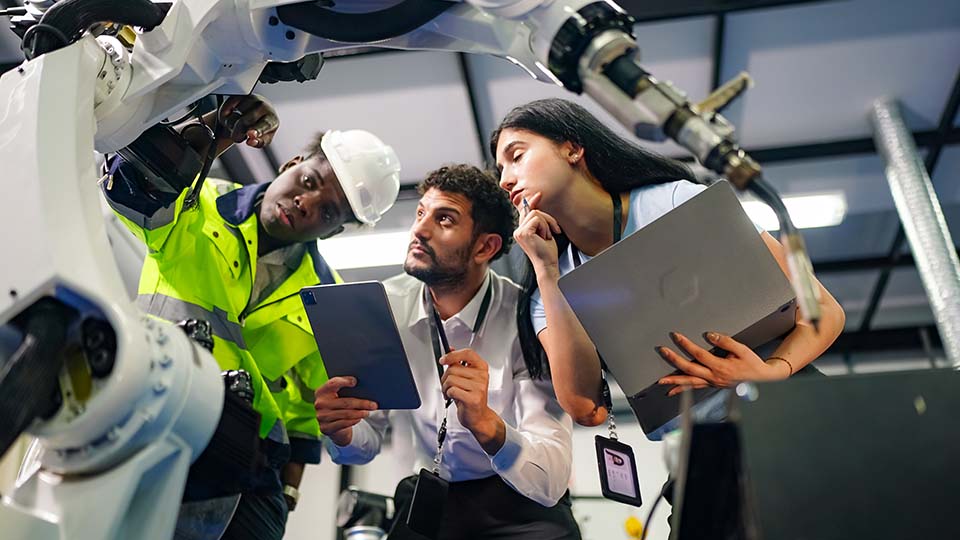
What do robotics and automation consultants do?
Getting a consultant for advanced automation solutions is the best way to make the most out of a new or current system. Below, I give a general overview of what a consultant does:
- Assessment: First things first, a consultant will look over the current automation operations to see what’s working and where there’s room for improvement. They’ll figure out how robotics and automation systems could improve current processes.
- Planning: After getting a good understanding of the system layout and company needs, they’ll help you create a game plan for deploying advanced robotics into your current setup. This includes picking the right automation technologies and setting a realistic timeline while coming up with a budget that makes sense for your business.
- Vendor Selection: Choosing the right automation technology providers can be tricky, but a consultant can make this process a lot easier. They will recommend the best vendors for your specific automation application needs.
- Implementation: When it is time to perform the integration of equipment, the consultant will oversee the installation and setup of your new systems. They will work closely with your team to make sure everything goes off according to the planned timeline while handling any issues that arise and ensuring the new technology fits seamlessly with what is already installed.
- Training: Once the automation equipment is installed, your team needs to know how to use it. A consultant can often provide detailed training to ensure the required engineering and maintenance team members are up to speed on how to operate and maintain the new automation systems effectively.
- Ongoing Support: Even after everything’s up and running, the consultant doesn’t just disappear. Many can provide ongoing support, helping you tweak the system as needed to meet cycle time requirements, help troubleshoot ramp-up issues, address any new challenges, and make adjustments as the system goes into full production.
When do you need robotics and automation consulting?
You might not need robotics or automation consulting right from the beginning of your project, but there are definitely times when having an expert on board can be a positive game-changer. Below, I describe when you should consider bringing in some consulting support:
Increasing Automation:
If your business is growing and you need to step up your production or operations quickly, a consultant can help you scale more smoothly. They can work with the robotics and automation systems during your expansion so you can continue looking for full-time support or getting the team up to speed on the machines.
Inefficient Production Lines:
If production is starting to slow or human errors are happening more often than they should, it might be time to consider industrial automation. A consultant can take a close look at your current operations, spot the inefficiencies, and recommend new automation technologies that can speed up cycle time, reduce human errors, and get you back on track to meet your production quote. Companies that have inefficient production lines will not be able to compete in the growing global market.
Increased Costs:
If you’re seeing your costs creep up and your profits start to shrink, an automation consultant can help you find smarter ways to save. They’ll show you how robotics and automation can lower labor costs, reduce waste, and make better use of your resources so you can keep your bottom line healthy.
New Automation Projects:
Kicking off a new project that’s a bit more complex or requires the latest automation technology? That’s the perfect time to get an automation consultant involved! They will help you set everything up from the concept and design phase, all the way through quality verification testing, up to production. Their job is to make sure the installation is done right from the start so you don’t run into automation issues (or unexpected machine downtime) later on.
New Automation Technologies:
Thinking about adopting new robotics or automation technology but not sure where to begin? This is another moment when a robotics and automation consultant can be invaluable to your business. They will guide you through the process, helping you choose the right technology and making sure it fits perfectly with your current business needs.
What’s the difference between hiring a consulting company vs. a freelance consultant?
When it comes to hiring a robotics and automation consultant, you have two main options: going with an engineering services consulting firm or hiring a freelance engineering professional.
Each has its own set of advantages and considerations, so let’s break it down to help you decide which might be the better fit for your business.
Consulting Company Pros And Cons:
The Pros:
- Consulting companies typically have a whole team of specialists, which means you get access to a wide range of expertise. Whether you need help with hardware, software, or integration, they’ve got someone who knows the ropes.
- Larger firms usually have more resources at their disposal, which can be a big help for larger projects. They can handle complex and multi-phase implementations with ease.
- Many consulting firms have a proven track record, which can give you added confidence that they’ll deliver high-quality results.
The Cons:
- All that expertise and those extra resources come at a price. Consulting companies tend to be more expensive than freelancers, which might not be ideal if you’re working with a tight budget.
- With larger firms, you might not get the same level of personal attention you would with a freelancer. You might be working with a rotating team rather than one consistent contact throughout your project.
Freelance Consulting Pros and Cons:
The Pros:
- Freelance consultants often provide a more personalized experience. You’ll typically work directly with the consultant who’s handling your project, which can give you a more hands-on, tailored approach.
- Freelancers usually charge less than consulting companies, making them a more budget-friendly option. If you’re a smaller business or just looking for help with a specific task, this can be a great choice.
- Freelancers can be more flexible with their scheduling and scope. They can often adapt quickly to changes in your project needs without the red tape you might find in larger firms.
The Cons:
- A freelance engineer might not have the same breadth of knowledge or resources as a consulting company, especially for larger or more complex projects. If the project requires multiple areas of technical expertise, you might need to hire additional specialists.
- Freelancers might be juggling multiple clients, so their availability could be limited. If they’re in high demand, you might need to wait your turn or deal with potential delays.
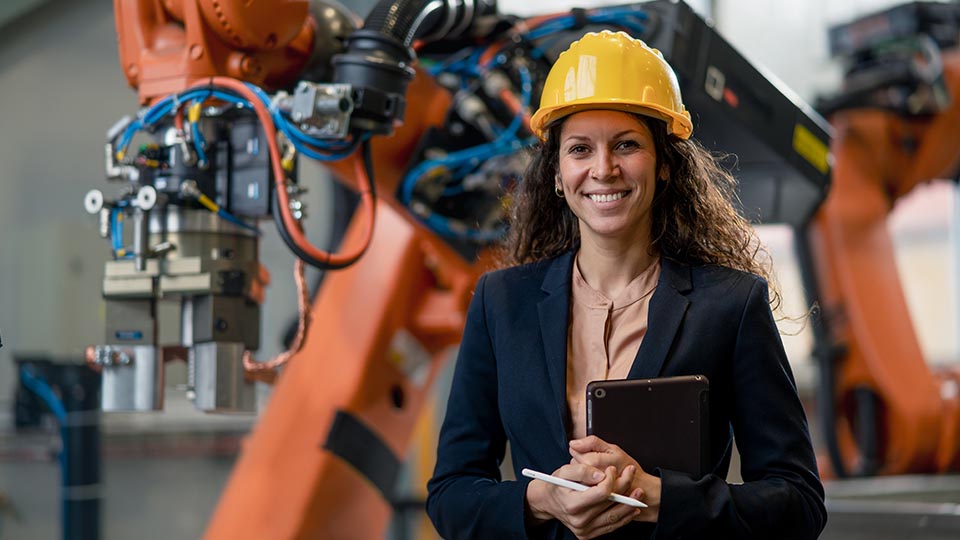
How to find the right robotics and automation consultant?
Finding engineering contractors might seem like a big task, but knowing what smart steps to take, you can land the perfect contractor for your business. Below is how I approach this situation. Below is how I approach this situation.
1. Word Of Mouth:
Start by asking people in your network. Whether it’s colleagues, industry peers, or even vendors you trust, personal recommendations can be gold. If someone you know has had a good experience with a consultant, that’s a great place to start.
2. Look Into Their Background:
Once you have a few names of people or companies, take a closer look at their credentials and experience. You want someone who knows your industry and understands the specific challenges you’re facing. Don’t hesitate to ask for examples of their past work or case studies that show what they’ve done for other companies.
Plus, it helps to make a list of specific technical skills you’re looking for. Robotics technology is a must, but you can also specify additional skills or certifications in fields like machine learning, artificial intelligence, project management, industry experience, etc.
3. Check Out Their Work:
A good consultant should have a vast portfolio of past projects to review. Take the time to review it and see what kinds of challenges they’ve tackled before. Look at the industries they’ve worked in, the types of projects they’ve completed, and whether they’ve come up with innovative solutions that might work for your project.
4. Schedule A Meeting:
Set up virtual or on-site interviews with your top choices and your technical staff. This isn’t just about grilling them on their skills—it’s also a chance to see how well they communicate with your team. A consultant should be knowledgeable, but they should also be someone you feel comfortable working with. This is a great time to discuss the scope of work, timelines, and your project requirements.
5. Talk Money And Terms:
Be upfront about your budget and make sure you’re clear on their invoice and pricing schedule. Some consultants charge by the hour, while others might offer a flat rate for a project. It’s important to understand what’s included in the price and whether there could be any additional costs. Also, discuss the timeline and what happens if the project scope changes along the way.
6. Check References:
This one is big! Before you make your final decision, it’s critical that you check the contractor’s references and read reviews. Reach out to past clients and ask about their experience. Online reviews can also give you some insight, but focus on the overall trends rather than individual comments.
Find the right consultants on JOINER Services.
Cutting-edge automation applications can be absolute game-changers in the manufacturing industry—maximizing efficiency, cutting costs, and driving growth. But let’s be honest; knowing where to find support on your own can be a bit difficult to navigate.
Whether you’re scaling up, launching a new project, or just looking to streamline operations, having the right consultant by your side can make all the difference. They’ll help you navigate the complexities, avoid the pitfalls, and find the perfect solutions for your needs.
But where do you find the perfect match?
JOINER Services is a hub that provides contract staffing services that specialize in all kinds of fields, including robotic programming, automation, controls engineering, program management, and so much more. If you need someone to optimize your automation efforts and support fully scaled deployments, JOINER Services is the best place to find help.

Join for free and start connecting with contract professionals today.
FREQUENTLY ASKED QUESTIONS
Below, I discuss more about advanced robotics and automation consulting.
